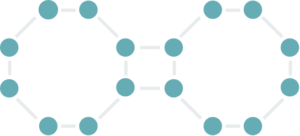
Chad Rigetti, Founder of Rigetti Computing
Chad Rigetti writes that his company is building a 128-qubit quantum computer over the next 12 months. The company has already built the 128-qubit processing chip, and is working to put all the pieces together to bring more power to researchers and developers. If successful, it could be the world’s most powerful quantum computer and it could have the chance to outpace traditional supercomputers.
We’re committed to building the world’s most powerful computers. But the true value of quantum will be unlocked through practical applications. Everything we do at Rigetti is through the lens of experimenting with quantum computers to solve some of society’s most pressing problems. Recent advances in hybrid algorithms have made the practical use of near-term quantum computers arise sooner than many of us thought possible. That’s why we’re focused on strengthening each layer of the quantum computing stack, from the hardware to the applications, to bring the practical use of quantum computing to life. Today we’re sharing more details on our plans to build and deploy a 128-qubit system over the next 12 months, and our investment in resources at the application layer to encourage experimentation on our quantum computers.
More processing power

The new 128-qubit chip is based on a scalable 16-qubit form factor.
According to Rigetti, the next phase of quantum computing will require more power at the hardware level to drive better results. Over the past year, we have built 8-qubitand 19-qubit superconducting quantum processors, which have been accessible to users over the cloud through our open source software platform Forest. These chips have been useful in helping researchers around the globecarry out and test programs on our quantum-classical hybrid computers. However, to drive practical use of quantum computing today, we must be able to scale and improve the performance of the chips and connect them to the electronics on which they run — which has proven to be one of the most challenging aspects of quantum computing.
Rigetti is in a unique position to solve these problems and build systems that scale. Our 128-qubit chip is developed on a new form factor that lends itself to rapid scaling. Because our in-house design, fab, software, and applications teams work closely together, we’re able to iterate and deploy new systems quickly. Our custom control electronics are designed specifically for hybrid quantum-classical computers, and we have begun integrating a 3D signaling architecture that will allow for truly scalable quantum chips. Over the next year, we’ll put these pieces together to bring more power to researchers and developers.
Bolstering the application layer
 Rigetti plans to home in on the application layer to put their quantum hardware to use.
Rigetti plans to home in on the application layer to put their quantum hardware to use.
Applications allow us to find solutions for real-world problems, which is what our team is most passionate about. Our in-house applications research team is focused on pursuing quantum advantage in three areas: quantum simulation, optimization, and machine learning. Quantum advantage comes from creating a solution that is faster, cheaper, or better quality. It’s an open question as to which industry will achieve the first commercially useful applications. But even a small performance improvement over classical machines can add tremendous value for researchers and businesses around the world who run, test, and optimize experiments on Forest. Running experiments teaches us a lot about how these machines work and can best be put to use. Neither continued hardware progress nor applications research alone will drive value: the critical component is their tight integration in support of solving real-world problems. Partnering with researchers and enterprises to continually advance these capabilities and tailor them to long-term business and research challenges will unlock the power of quantum for everyone.




